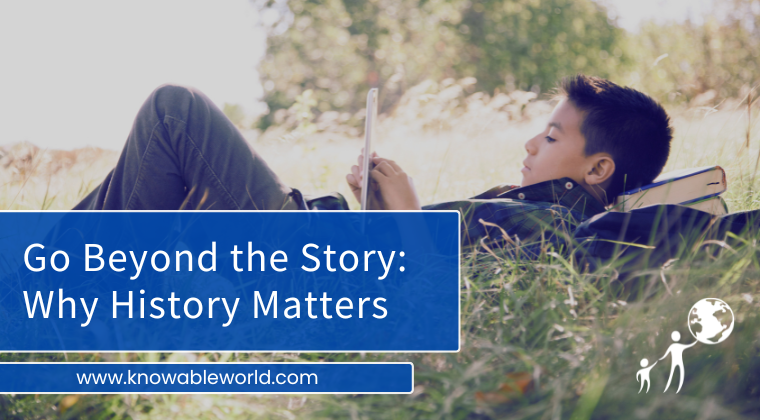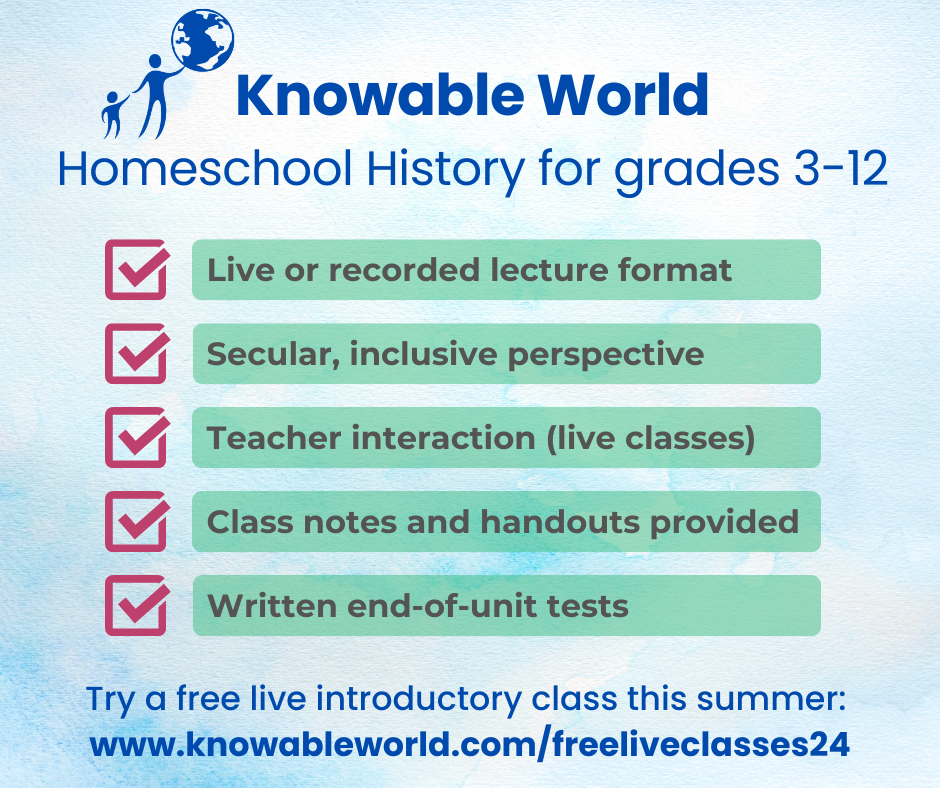
“History … is not a subject. It is the subject.”
– The Well-Trained Mind
The problem with history: There’s too much of it!
Homeschooling parents are often convinced of the importance of history. We want to make sure that our children know about great men and women who have done brave deeds, made great discoveries, and whose actions changed the world. We want to make sure they know the heights and depths of human thought and action. And we want them to have a broader perspective about life and its possibilities that they can only get from learning about people who lived in very different times and places.
When it comes to teaching history, however, parents face a familiar problem: history is a plethora. There is too much of it! How do you decide what to teach? How do you know you aren’t missing anything important? And how do you make all of this information add up to real understanding in your child’s mind?
In the early years especially, homeschoolers are often encouraged to look at history as a story, or a set of stories, and to simply read these stories together with their children. They may use the Story of the World series, along with picture books from the library and, perhaps, historical fiction, TV shows, or movies. They may, following the advice in The Well-Trained Mind, have their children create their own history storybooks with narrations or colouring pages.
This approach is generally going to teach a child much more than they would learn in a typical public school in 2024. However, at some point, most children become bored of just hearing stories. They want to know why the stories matter. They need to understand why the stories matter if they are going to put effort into memorizing dates, events, and names. Students, as well as parents, begin to wonder whether knowing a lot of stories really adds up to historical knowledge. How do you bring it all together? What does it mean to know history?
What does it mean to know history?
At Knowable World, we don’t believe that the study of history is simply piling up stories or facts about things that happened in the past. Instead, we see history as “the revelation and explanation of the world we live in.”
What’s the point of learning history? It’s not simply to know that things have been different than they are now. It’s to understand the world as it is today – which includes an understanding of the people and events that have led up to the present. When students see that their learning actually helps them make sense of the things they see and hear around them in their life outside of school – the things they overhear adults talking about, things their friends tell them, or events that they see on the news or that touch their lives in some way – that provides the motivation to learn more, deepen their understanding, and assimilate the facts (even the dates!) that help explain what they are seeing.
Another advantage of teaching history with the present-centric method used at Knowable World is that it helps us identify which facts are the most important, so we can focus on those and avoid becoming bogged down by the plethora of the past. There are thousands of years worth of events, cultures, and people that we could study! But we only have twelve short years to give our students the information that will best equip them to live effective, happy lives. By using the lens of present-centrism, we can identify and convey the most important facts of history – the ones that have the most power to explain the world we live in today.
This is what motivates students to put in the effort it takes to gain a lasting knowledge of history. They not only memorize dates, events, and names, but they understand the connections among events and causal connections to the facts of the world as it is today.
Get started with a free class!
If you started out your homeschool history studies with the Story of the World Series or another story-based approach, and now you’re wondering how to make history deeper and more meaningful for your student, then live or recorded classes with Knowable World might be the perfect next step. Register your student for a free live class this summer to see how it all works!

